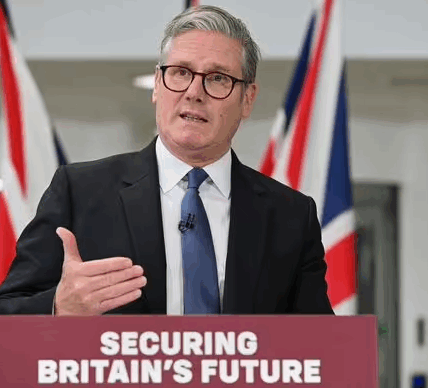
One expert said the introduction of IHT on unused pension funds was ‘riddled with issues’ (Image: Getty)
Rachel Reeves’ plan to introduce inheritance tax on pensions is “unworkable,” according to some experts.
In her maiden Budget, Reeves said any unused pension funds and death benefits will be subject to Inheritance Tax (IHT).
Unused pension funds and death benefits, which are often included in gold-plated final salary schemes, could be inherited by surviving relatives and were not subject to inheritance tax.
The changes brought in by Reeves are due to come into effect on 6 April 2027, but the chancellor has been consulting with pension providers and consultants to introduce them.
Inheritance tax is charged at 40% after someone dies; they would need to have left assets worth over £325,000, although different allowances apply to different types of assets.
For example, there is an allowance called the residence nil-rate band, which allows parents or grandparents to leave a property valued at £175,000 to their children or grandchildren without it being subject to tax.
Experts say the UK’s pension system has a huge legacy with many different types of occupational and personal pensions, so any tax changes must take into account the complex nature of these.
There are also fears that more demands on the system could further exacerbate delays in the probate system.
Kate Smith, head of pensions at Aegon, said the proposals were riddled with issues.
She said: “We do not support unused pension and death benefits being shoehorned into the Inheritance Tax regime, as this is unworkable and riddled with issues. IHT is already complex, and including pensions within the regime makes it even more so.”
Smith told International Adviser Aegon was asking HMRC to explore simpler alternatives, such as levying a tax on pensions in scope where above a certain level.
“For example, the first £100,000 of unused pensions on death would be inherited free of the new pension tax charge. This also has the added benefit of avoiding encouraging individuals to run down their pension too quickly to avoid an IHT charge.
“If HMRC does proceed with its proposals and tries to retrofit pensions into the IHT regime, we believe a number of fundamental changes are needed.
Smith also noted that a decline in the number of couples getting married, and increase in cohabitation, and the number of children born to unmarried parents made the changes with today’s societal norms.
Jon Greer, head of retirement policy at Quilter, said the proposals as they currently stand risk creating significant problems for families, adding unnecessary complexity and delays at a time of grief.
He urged Reeves to look at alternatives, such as a flat-rate tax on unused pension funds.
He said: “A flat-rate tax has several advantages. It eliminates the risk of extreme rates of double taxation, ensures consistency for savers, and speeds up the distribution of pension funds.
“This system would also support the government’s administrative goals and speed up the tax-taking process.”


